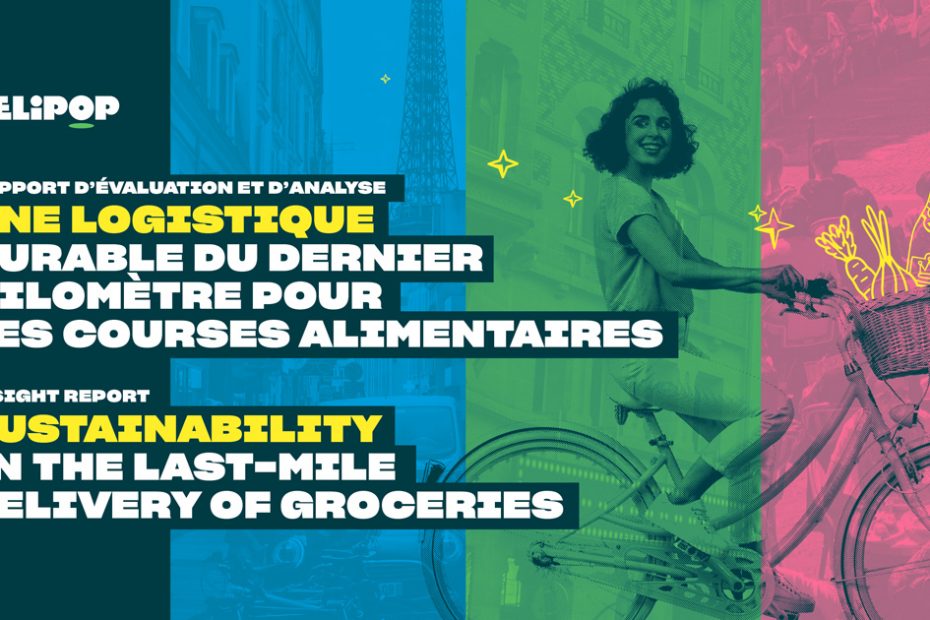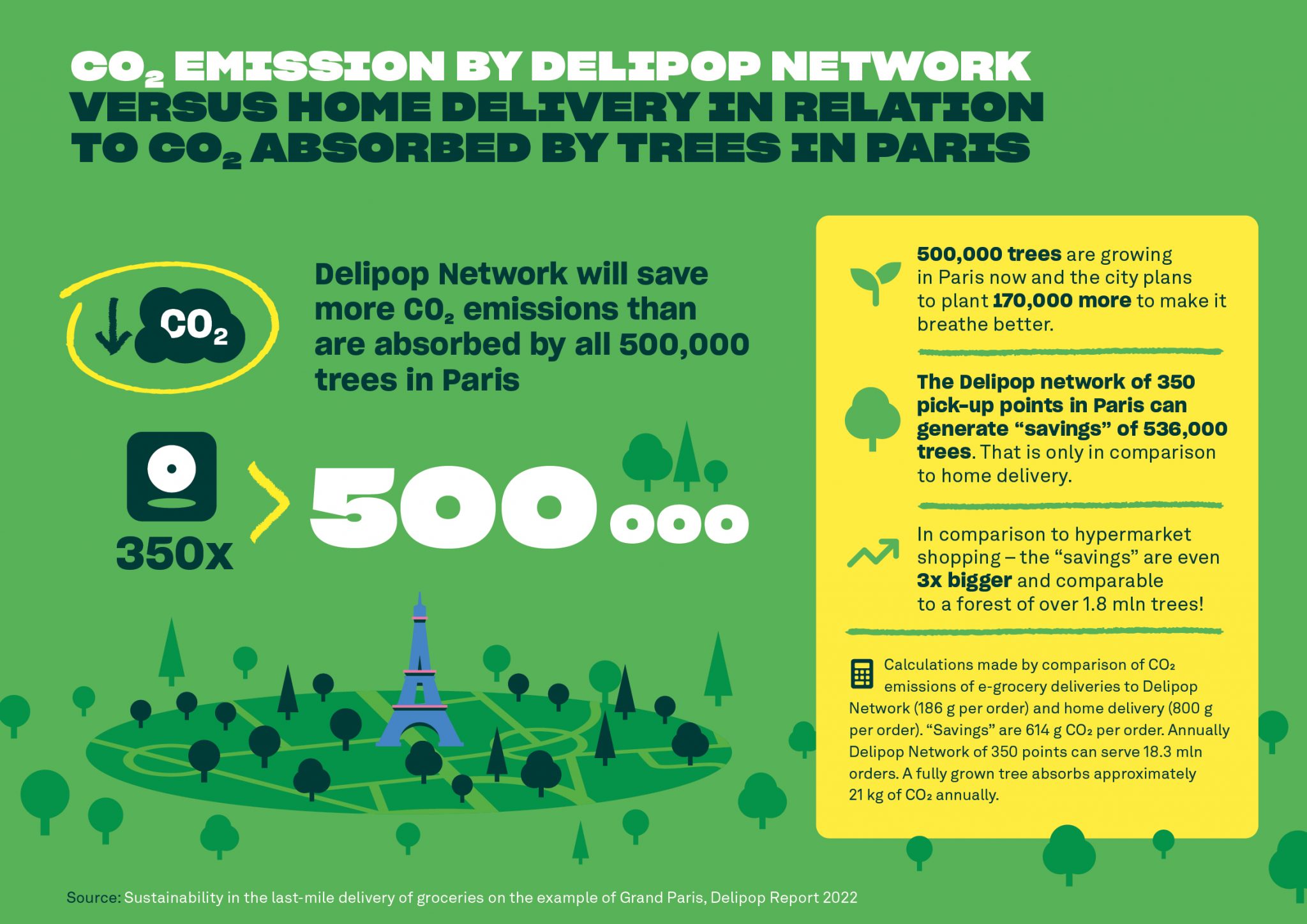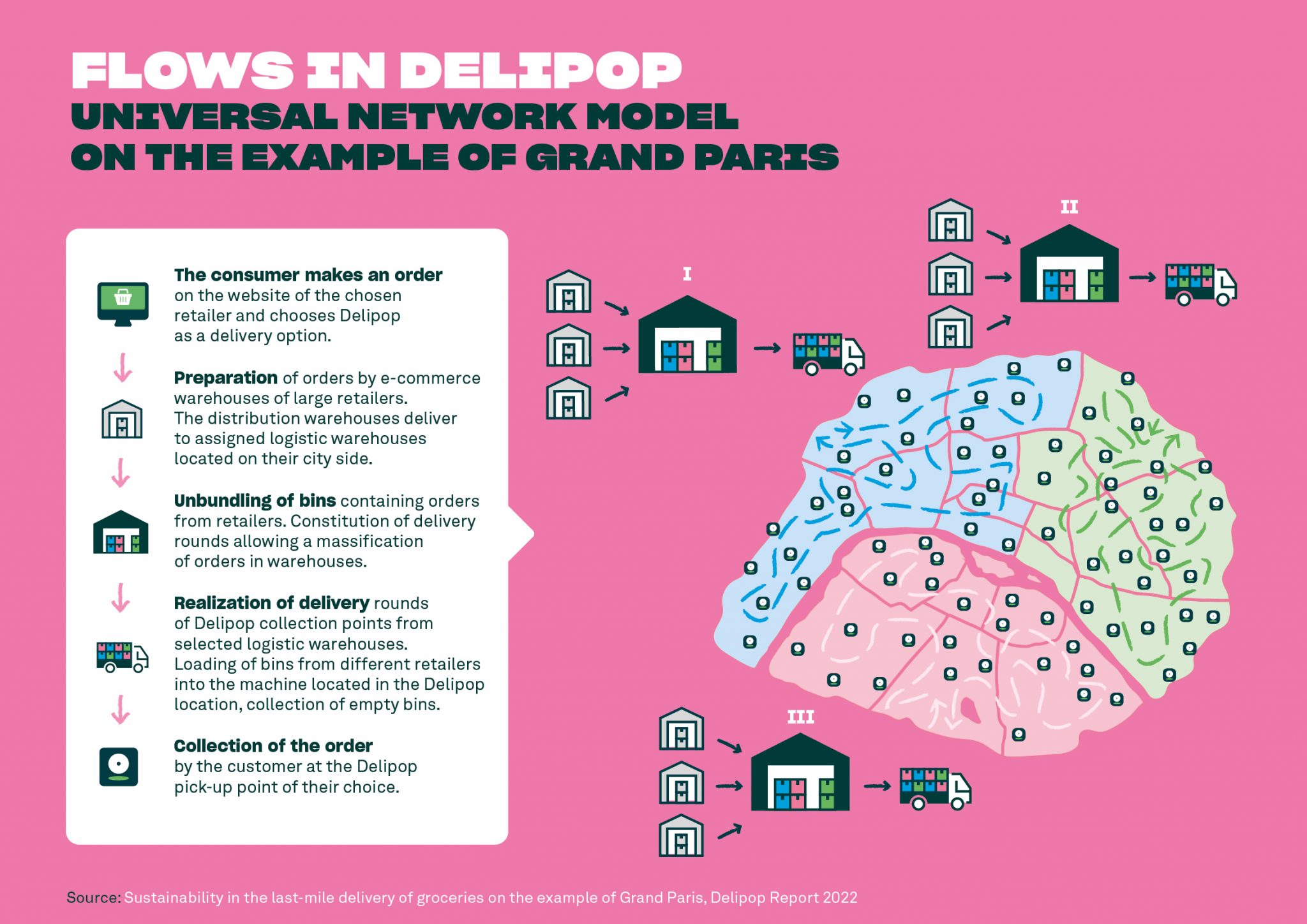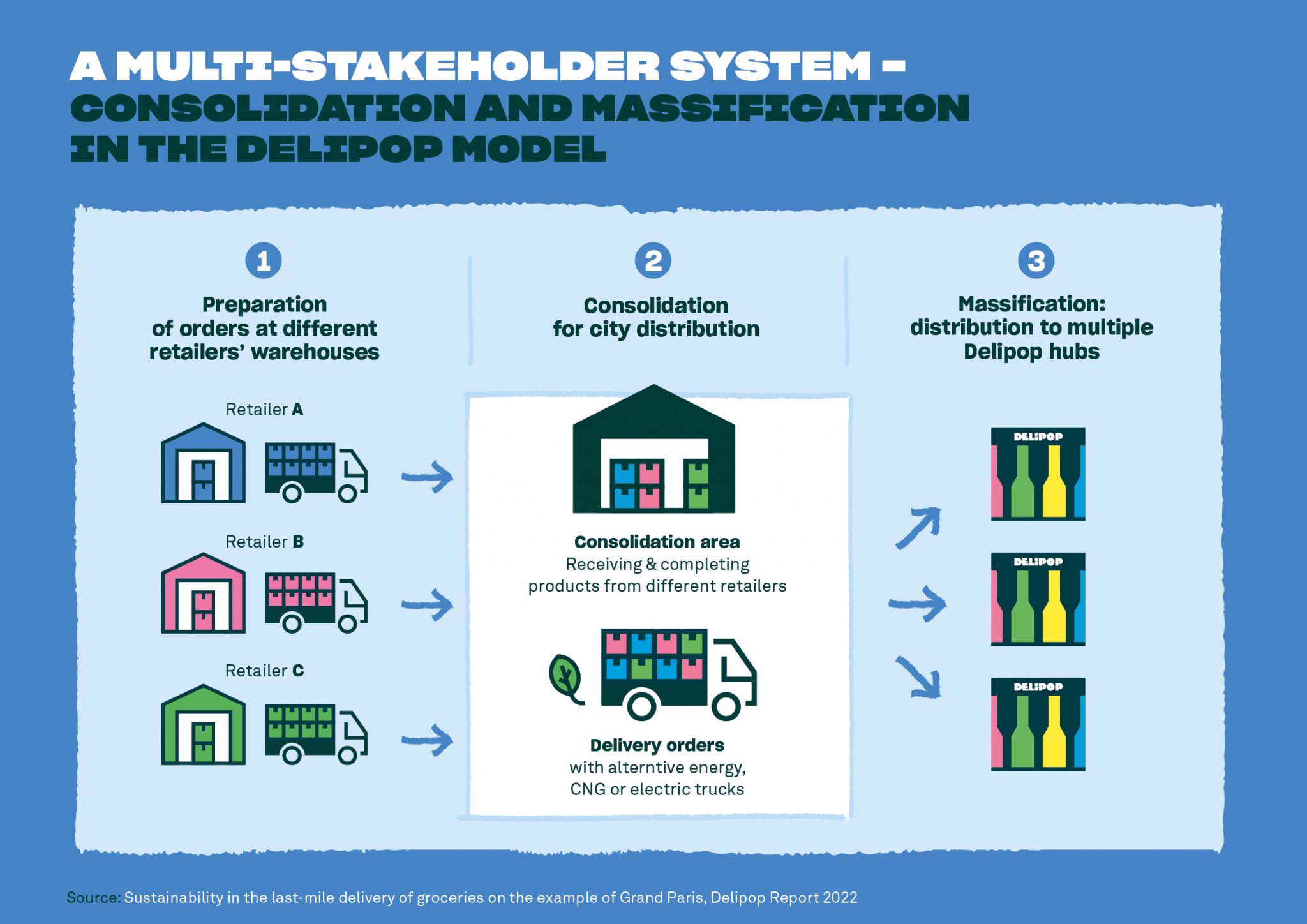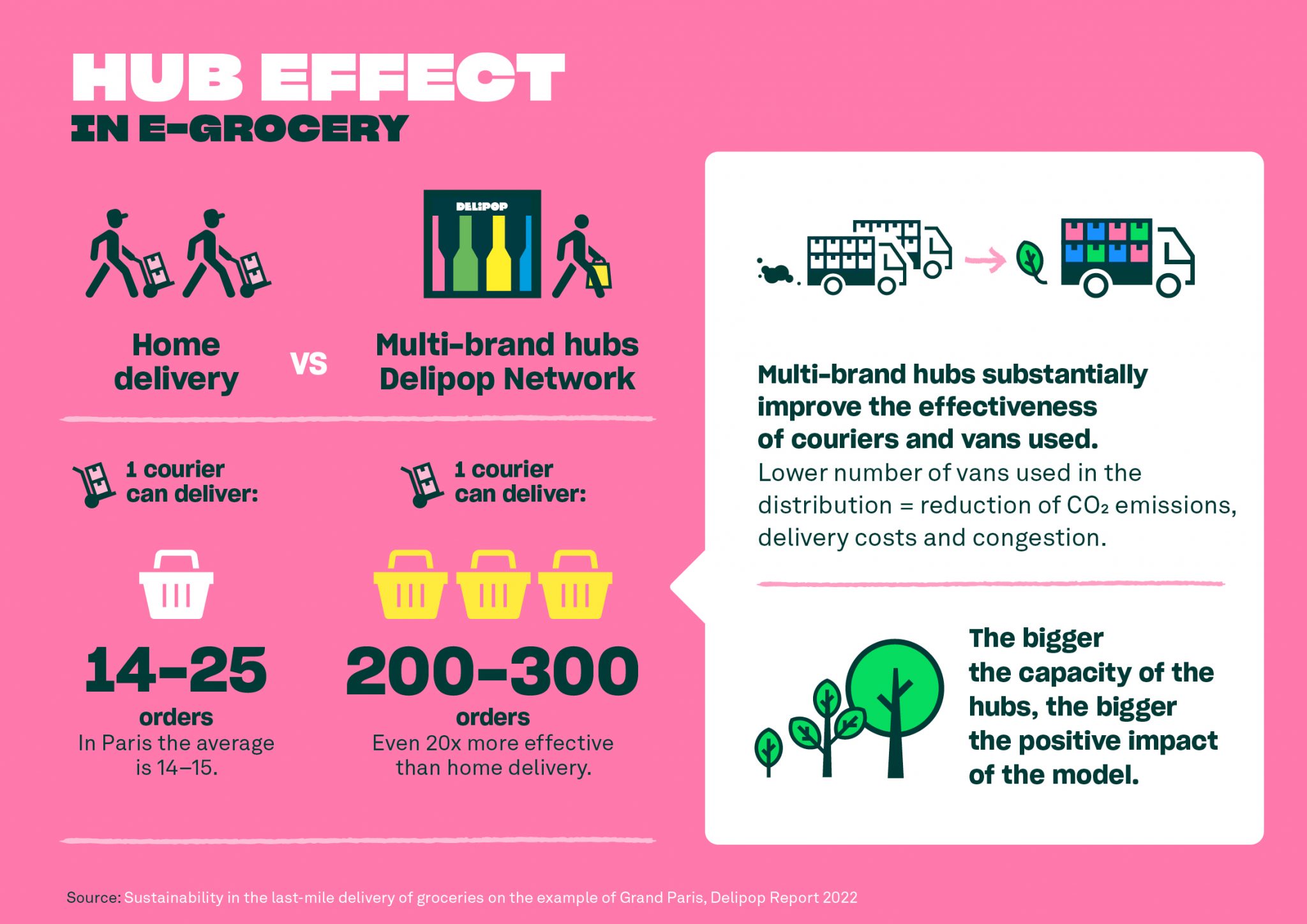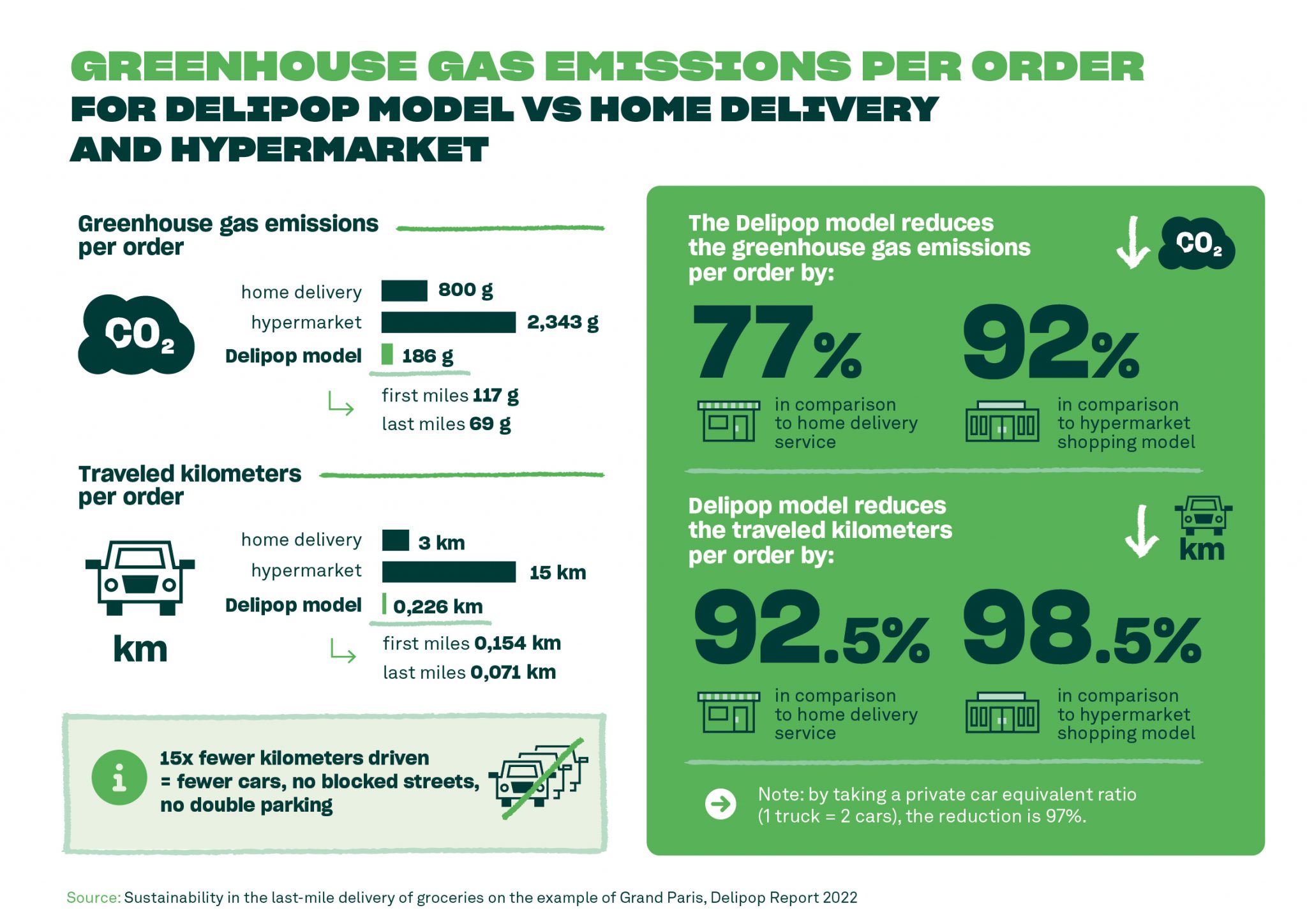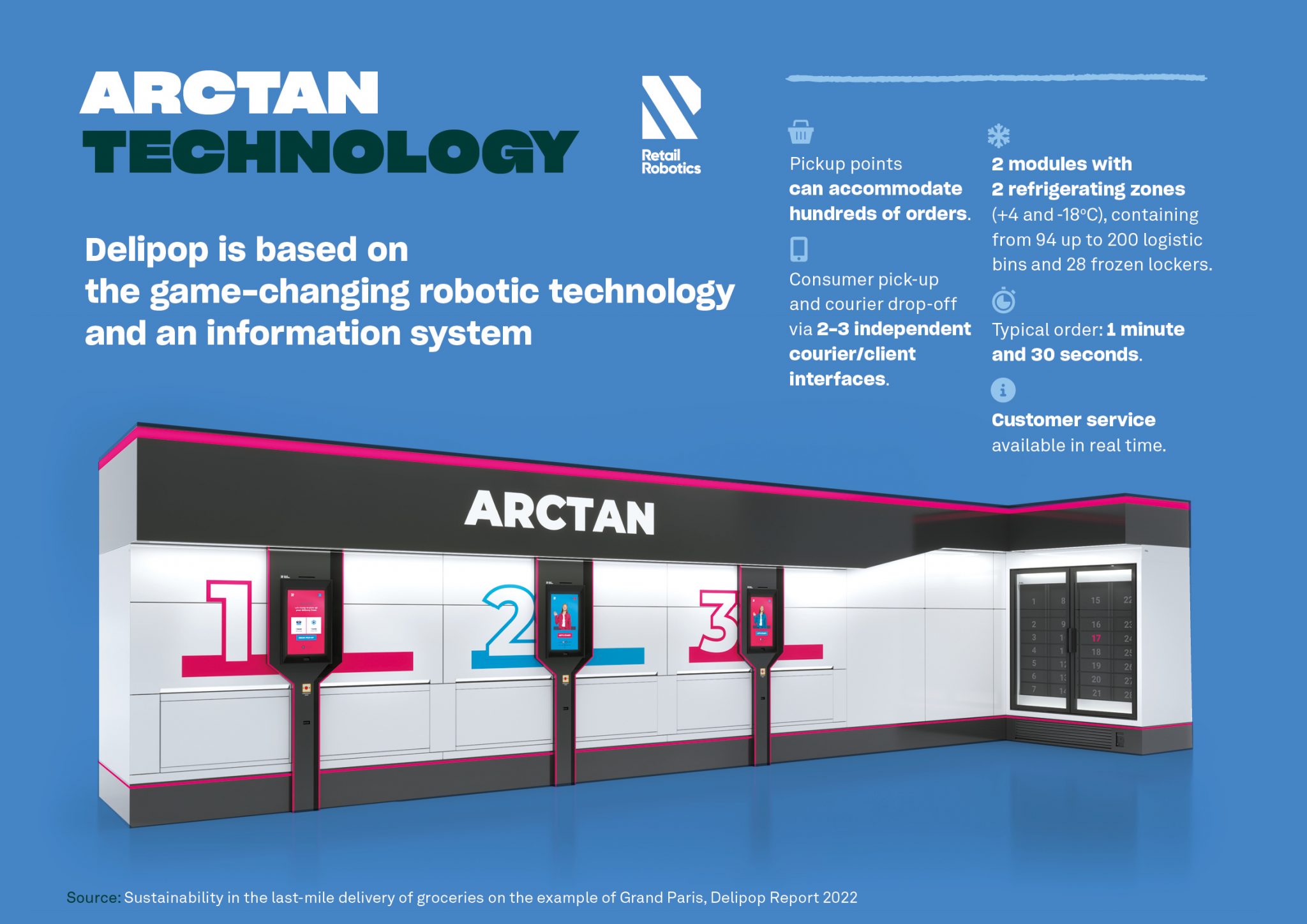The report “Sustainability in the last mile delivery of groceries on the example of Grand Paris” by Delipop presents insights for the green transformation of French cities.
The cities like Paris are tackling critical issues like higher greenhouse gas emissions, air pollution, traffic and congestion due to the changes in consumer habits and booming e-commerce which is increasing the scale of delivery to numbers never seen before. The report “Sustainability in the last-mile delivery of groceries on the example of Grand Paris” written by Jérôme Libeskind, Olivier Dauvers, Stephane Legatelois and Marek Piotrowski, delivers the insights on how to create the last-mile delivery infrastructure which will be sustainable and therefore better for the planet, convenient and affordable for the people and profitable for the market players.
‘Urban delivery is essential for the functioning of a major city. If the flows of goods are multiple, those concerning consumer products constitute the most visible part. But the progressive awareness of environmental impacts of deliveries requires new solutions for consolidating flows and better modes of transport.’ – emphasizes Jérôme Libeskind, expert in urban logistics and head of Logicités and one of the authors of the report.
The authors of the report analyzed the environmental impact of different e-grocery delivery options in Grand Paris: home delivery model, hypermarket shopping model and multi-brand pick-up hubs model – Delipop Network. According to the report’s calculation, the Delipop automated pick-up points model provides a reduction of environmental impact by 77% compared to the home delivery service and 92% compared to the hypermarket purchases. Delivery to Delipop chain generates 15 times fewer kilometers driven – less cars, no blocked streets and no double parking. Based on the study of Delipop Model in Grand Paris – the network of planned 350 pick-up points will reduce CO2 emission versus home delivery by more than it is absorbed by all 500,000 trees which grow in Paris. In comparison to the home delivery model it can generate “savings” in CO2 emissions comparable to CO2 absorbed by 536.000 trees and in comparison to hypermarket shopping the “savings” are even 3 times bigger and comparable to a forest of over 1.8 mln trees.
According to the World Economic Forum and this analysis, the only really effective solution available at the moment for the cities are multibrand pick-up hubs.
A great example of a sustainable solution for urban logistics in big cities, that can considerably improve the last-mile – most problematic in inner-city areas – is Delipop. It is the first universal multi-brand click & collect network for e-grocery, which launched its first location in Paris last year together with Carrefour. Monoprix has joined as the second retailer brand in June 2022. The Delipop model is based on the consolidation of upstream logistics flows in warehouses located outside the city and on the orders delivery to mutual collection points in urban areas. Automation helps to reduce operating costs, which are the main obstacle to a sustainable business model of pedestrian drives. Moreover, merging volumes and massification is efficient in terms of emissions, road occupancy of delivery vehicles and number of vehicles. The consolidation of flows by grouping the flows of several brands and a walk-in pick-up point avoids individual deliveries. In this sense, Delipop provides an answer for all inner-cities problems with urban congestion, supporting demotorization of cities, the implementation of green zones and a 15-minute city concept.
‘Retailers see a solution that achieves their growth and profitability goals, local merchants get a new service that allows them to increase their sales and their trade perimeters, whereas consumers find a simple, fast solution that allows them to save time and have access to a unique product offer. Finally, city authorities see a solution that limits traffic, urban congestion in cities and fits perfectly into the ecosystem.’ – comments Stéphane Legatelois, Chief Executive Officer at Delipop France.
‘Delipop can help big cities to build the bridge between traditional commerce and its sustainable future in a time of booming e-commerce.’ – comments Marek Piotrowski, Chief Marketing & Experience Officer at Delipop and Retail Robotics.
Download the full report and check the report website for more insights here: https://www.sustainability-report.delipop.com
